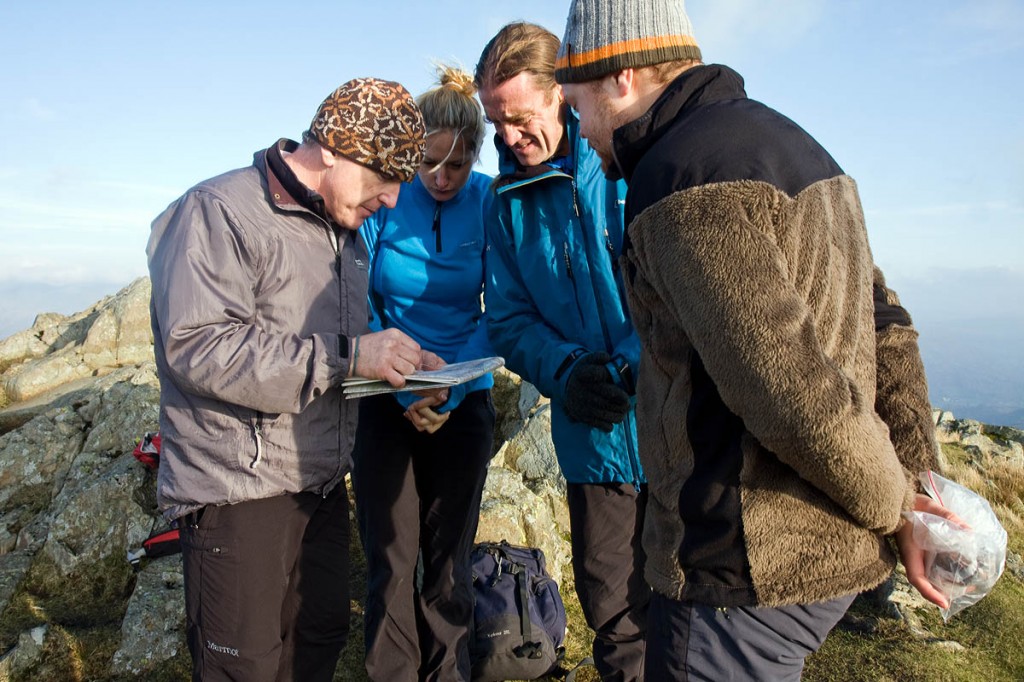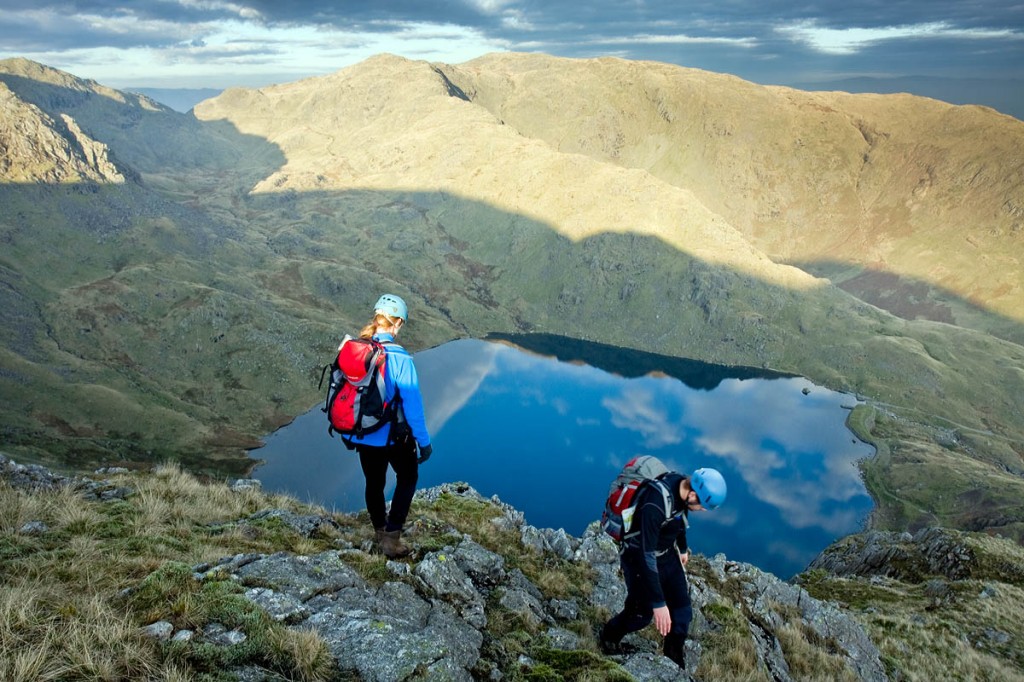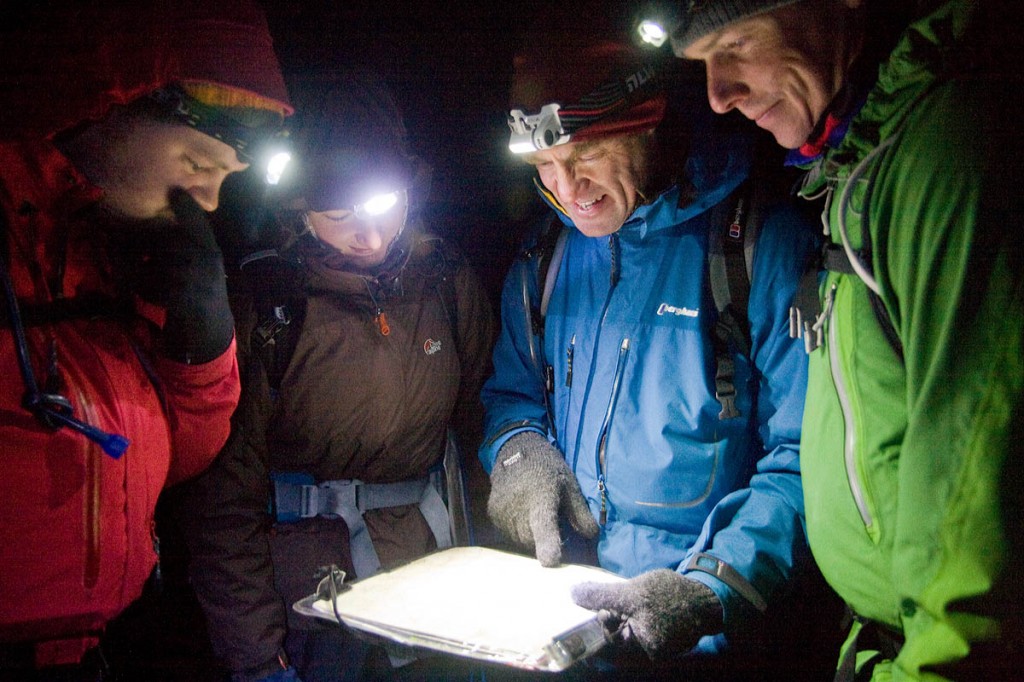Mountaineers fear the introduction of fees for commercial use of land owned by one of the country’s biggest conservation charities could hit outdoor training.
The National Trust has launched a pilot scheme covering 21 of its properties, where anyone running events for money will have to obtain a licence and pay a fee.
The Lake District, where many Mountain Leader training and assessment courses are run, is included in the list. The trust deems any activity where money is paid to be commercial and so subject to licensing, despite Department for Environment, Food and Rural Affairs guidance on open access land saying ‘activities organised for promoting or teaching an adventurous outdoor activity are unlikely to be undertaken or organised for a commercial purpose’.
The new National Trust rule is also likely to hit events such as ultrarunning competitions, mountain marathons and charity National Three Peaks walks.
The trust said: “People are now enjoying events and activities in the outdoors more than ever, and that’s great.
“But with that enjoyment comes, inevitably, more erosion and damage and the need for more repair and protection. It is the role of the National Trust to protect areas of land now and for the future, ensure adequate insurances are in place, protect event providers from liabilities of prosecution for environmental impact, support farm tenants and remove the risk of multiple events and activities clashing at the same venue.
“Across the country, people enjoy the National Trust’s open spaces to walk, run, climb, cycle and the freedom to roam. It’s the role of the National Trust, as land managers to look after these spaces for the enjoyment of everyone, and for future generations.
“Rights of way and open access land are really intended for individuals to get out and explore, but are not set up for racing or professional organisations to run their business upon.”
The trust adds that events run in conjunction with itself are likely to have their fees waived. Fees under the pilot scheme are pitched at 3 per cent of the income from the event, with an upfront licence application fee of between £50 and £100.
The charity said its aim is to minimise damage through greater control of activities happening on trust land; reduce conflicts between user groups; ensure provision is run at a high standard; develop better relationships with providers and increase understanding of the trust with their students and generate income with money raised going directly back to repair and maintain land.
The British Mountaineering Council held a teleconference with the National Trust to press the case for exemption of training courses by instructors and guides teaching and assessing candidates on courses such as Mountain Leader, Hill and Moorland Leader and Single Pitch Award.
The National Trust will also insist licensees hold relevant qualifications, though the BMC points out there are several ways of demonstrating competence, not all of which involve holding national governing body awards.
The council said: “The BMC strongly supports a view that the vast majority of provider work falls within this definition [promoting or teaching an adventurous outdoor activity] with a primary purpose of educating students, building skills to encourage further participation in outdoor activities and teaching an appreciation of the landscape and environment.
“Based on this interpretation of the law, providers using access land owned by the National Trust for the primary purpose of educating students should have a free right of access.”
The BMC is also worried the NT licensing scheme may set a precedent, with other landowners introducing similar stipulations, making it difficult to run courses which cross several owners’ land.
It added: “A key requirement for outdoor providers is to remain able to react to unexpected changes to weather and conditions and change venue at the last minute if necessary. This is an integral part of the activities climbers and walkers participate in and making last minute changes more difficult will only result in a reduction in safety for providers and students.”
It also points out that no-one can charge a fee for people to use rights of way. There is also the likelihood the charges will displace providers’ courses on to other areas, it said.
The pilot scheme will run for six months and the National Trust will then look at extending a licensing scheme for all its properties next year.
The BMC is asking providers and others involved in running what the trust deems commercial activities to contact it with their views. Mountain Training, which oversees the national governing body courses and awards likely to be affected, has also contacted those registered for its awards to canvass their opinion.
The BMC said: “A key point to note is that this is currently a pilot scheme and the trust was keen to stress that there is scope for it to change significantly if elements of the pilot version are found not to work.
“The trust is planning regular reviews throughout the pilot and a larger review in the autumn, accumulating feedback from local providers in the 21 pilot areas as well as from partner organisations.”
The areas, spread across England, are: the Lake District, New Forest, Alderley Edge, Longshaw, Osterley, Carding Mill Valley, Ashridge, Wimpole, Killerton, Clumber Park, Penrose, Birling Gap and Slindon, Gibside, Attingham, Purbeck, Buckland Abbey, Speke, Formby, Arlington, Tyntesfield and Leigh Woods and the trust’s properties in Gloucestershire.
National Trust land in Wales will also be included in the licensing scheme next year. Scotland’s access laws permit commercial activities which comply with the outdoor access code.



RichT
19 April 2016Wouldn't installing turnstiles on the most popular/eroded paths be a fairer way. Pay per use, not just the easy targets. Maybe heavier people pay more too, add a weigh bridge to the turnstile!
TH
19 April 2016Not a bad thing if only for charity National Three Peaks walkers to cough up considering the amount of rubbish they leave behind everywhere they go.
JB
19 April 2016How ridiculous. If this is legal it goes to show that England's access legislation / "right to roam" is really not all it's cracked up to be.
Glad I live in Scotland where we don't have to put up with this sort of rubbish (paying for parking when visiting the hills being another example!)
Steve
19 April 2016The London local news this evening reports that NT are starting to charge entry for the general public to a bluebell wood on the Ashridge Estate. So it seems their plans could be somewhat wider than highlighted in this report. This is very scary for the future.
Paul
19 April 2016I had planned to hold a geology workshop in May in the Lake District, but will now probably cancel it tomorrow morning as I would seem to require the licence etc but it won't be worth my while organising the event if I have to pay the amounts mentioned in the article to run the workshop as I have to cover travel and campsite costs (as well as insurance). I will instead concentrate on running workshops in Wales where I live and where travel and accommodation costs are minimal for me.
Sheepy
20 April 2016You already have to pay to use NT car parks unless you're a member. In which case your annual membership gives you "free" parking. It's a small price to pay. You also get free entry to all of their historic houses etc
I don't see what the problem is. If you are running a Commercial operation then why shouldn't you pay? I run my own business but I don't expect free use of hotels for meetings, software, stationary, Licences to trade, Insurance etc. I pay for it and factor it into my fees.
If you run a business that makes money from charging people then you should pay and factor the cost into your fees. What is so difficult about that?
Paul, if it costs you to put on the workshop then the attendees need to pay towards it. By the way, if you can run the course in Wales then why were you going to the Lakes anyway?
You want to try working in Financial Services. We get hammered for huge arbitrary amounts every year and have no say in the matter. Good guys pay for the bad as well as the usual civil servant incompetence. Who ultimately ends up paying? The clients of course, the costs get passed on.
The point ultimately is why should someone/body earn money from using some one else's land/facilities and not be expected to contribute towards it upkeep.
Dr Mick Hill
20 April 2016First thing to say is that I'm commenting here in a strictly personal capacity. Two of my major interests in life are Mountain Rescue and politics. I've been an active MR team member for 10 years and I'm married to a politician. In.my day-job, I regularly interact with the charity sector. I'm not up to date with the shenanigans in the NT but I think I can smell the work of neo-liberals here. My personal view (I obviously can't comment on what MREW, or even my team leadership might think ) is that anything that hinders young people acquiring outdoor skills (and this will) will envitably entail a human cost. If neoliberals are about anything, then thay are about shifting the risk: they don't really care where it lands - on individuals / charities etc. To me, less opportunity to gain basic skills = more accidents. More accidents = more potential unessecary tragedies, more cost to the NHS, and more callouts. Many of my MR colleagues work in the outdoor education industry. This is strictly competitive and inevitably, they'll have to pass costs on to customers. In austerity Britain, I know who's kids will have to forego the opportunities to experience the outdoors that I had from my raggy-arsed origins. It won't be the well-to-do ones. To be fair to the NT, they've probably had a whack to their funding, but still, they should have a soul-search and properly re-examine their charter before they implement this strictlly regressive step.
Graham James
20 April 2016@Sheepy - the problem is that there appears to be no distinction between commercial operations and for example fell races, orienteering events, LDWA challenge walks organised on a not-for-profit basis.
Ian512
20 April 2016Just one more of the varied problems created by the vigorous commercialisation that now drives the activity.
MF
20 April 2016They are a commercial enterprise not a charity and they should be honest about that instead of taking public subsidy. Their charitable status should be revoked.
Who voted for their board of trustees? Did you? They are an undemocratic and unaccountable quango , totally undeserving of the support they get from the public and the taxpayer.
As Dr Mick Hill points out this policy will hit the poorest hardest and a general lowering of outdoor skills will inevitably result in deaths on the hill for which we can thank the charity of the National Trust.
Ian512
21 April 2016"Hit the poorest hardest"? The folks out in the countryside doing all the various activities with expensive equipment are, in the main, not poor.
There is absolutely no reason why learning outdoor skills has to rely on a commercial training course.
OutdoorsAndy
21 April 2016Its an interesting one...
Ian512, You could interpret this as a situation that needs to change, (i.e. lower income people not accessing the outdoors to the detriment of their physical and mental health), and that increasing expenses to organised access of public access land will therefore compound the problem further, so yes an increase in costs will affect those least able to afford it most. There are many organisations that charge local authorities to take disadvantaged kids into the outdoors and this will potentially see this expense increased and a facilities reduced, which to my mind is a shame.
You are of course right about learning outdoor skills. However, it would seem that we have a great qualification system for guides that take people out into hard to access places, so they can prove a competency in line with customer expectations and safety. These are not always paid for commercial services, such as teacher overseeing DofE. In addition, there are individuals that seek to learn more technical maintain skills so they can remain safe in accessing their aspirations. Adding additional costs to this, would seem a shame (and a further illustration of the restriction to access for the low income). As a final observance, most of the hill goers I know are far from rich, its a real mixed bag, just some people go without to purchase their climbing kit or jackets etc. And I have yet to meet an outdoor instructor that became rich from their instructing, (with the exception of people such a Ray Mears, and I'm pretty sure he got rich from TV, not Wood Law).
I can well understand the BMC's fear of a precedent been set. It would seem a very logical conclusion.
However, I can understand the commercial argument around paying your way for access and upkeep. Nevertheless we live in an age of increasing obesity and depression and access the outdoors is a cure for both, so encouraging its use should be considered a high priority. Increasing the costs for companies/groups centred around encouraging access can't help this, (and many earn very little, unlike the financial services sector;P).
Its a shame that the lakes get so much use when there are so many other areas that are underused, (most of Scotland, The North York Moors for two easy examples). I think there is enough rugged terrain and geology in these areas to go around!
Perhaps its also about thinking outside of this area to elevate the pressure on the land? (if that is indeed the true reason behind this pilot and not a ploy to earn more cash from assets). Be great to see the BBC's focus slip to these some more. That said, any telly that encourages the telly watchers to get outside get my vote!
Ian512
22 April 2016Andy, I didn't use the word “rich”, but your line of discussion is certainly in accord with current opinion.
Whereas, I accept my 'commercialism discussion' is in a small rowing boat trying to keep pace with a very large ship.
However, there is still no reason why someone, keen to get on the hills today, could not adopt an approach used by earlier generations. Perhaps not as comfortable at times but certainly possible and the Trust's new charges would irrelevant.
Hollywood
25 April 2016Lets get one thing into perspective atleast. The National Trust are a charity that looks after huge amounts of land for good of the nation...hence the name. They aren't government backed and rely on membership and donations to cover all of the conservation work that goes on in historic houses to the fells. Membership starts at around 18p a day and you get free access to it all for that, that's the way I look at it anyway.
As commercial business numbers in the outdoor sector grows they put a pressure on the land that the NT looks after. A license fee will help offset the cost of looking after that place and considering the amount that some of these companies charge for taking part in a race or make as they lead walks etc... I don't think £50-£100 is going to make that much difference to them. Perhaps they might even be proud to help look after the paths and hills they trample on.
We should be supporting the people that protect these amazing places and not having a go at them. Just think about what the alternative might be, the government is selling off land left right and centre to build housing estates everywhere! Atleast the Trust steps up and tries to keep Britain green and pleasant.